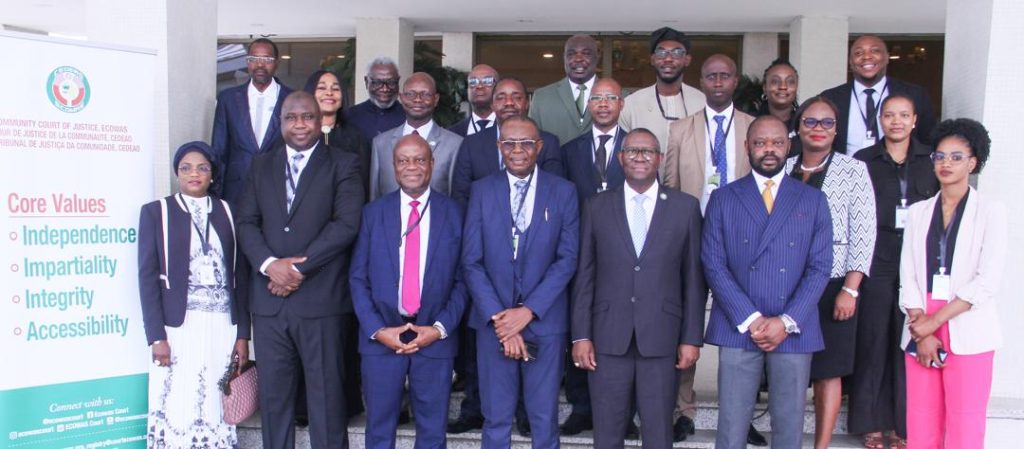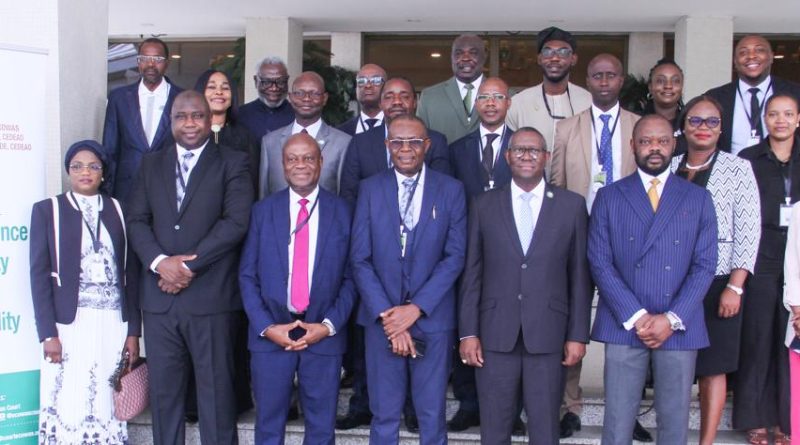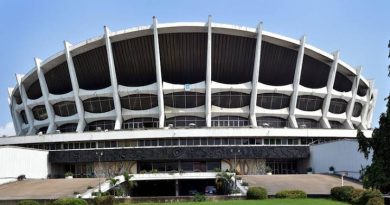Authorities Responsible For Enforcement Of ECOWAS Court Judgments Begin In Lagos
By Bukar BOLORI
The inaugural meeting of Competent National Authorities (CNA) of ECOWAS Member States responsible for the enforcement of the judgments of the Community Court of Justice, ECOWAS has commenced in Lagos, Nigeria.
The two-day meeting holding from 23 – 24 June 2025 under the theme Enhancing the Role, Relevance, and Effectiveness of the ECOWAS Court of Justice: Strengthening Synergies Between the Court and Competent National Authorities seeks to tackle challenges impeding the effective enforcement of the Court’s decisions and to identify actionable solutions.
In his keynote address, the Honourable President of the Court, Justice Ricardo Cláudio Monteiro Gonçalves emphasised the binding nature of the Court’s judgments and the responsibility of Member States to ensure their execution.

He highlighted the critical role enforcement of judgments play in upholding the rule of law, promoting justice, and strengthening regional human rights protections.
Citing Article 24(2) of the Protocol on the Court, the President reiterated that the Court’s judgments are to be enforced through writs submitted to competent national authorities, who must verify them and act in accordance with domestic civil procedure rules to ensure their execution.
He further referenced Article 24(4), which mandates Member States to designate and notify the Court of their competent national authorities.
He commended 10 of the 12 Member States who have complied with their obligation to designate a competent national authority.
The Attorney-General of the Federation and Minister of Justice of Nigeria, Lateef Fagbemi SAN who was represented by Mr Nnanna Ibom, Director of International and Compliance Law in the Ministry of Justice, commended the President of the Court for convening the meeting.
He described the initiative as crucial to advancing regional integration, access to justice, and the rule of law.
“It is imperative that we explore practical strategies to harmonise enforcement protocols and strengthen the interface between the Court and Member States’ justice institutions,” he stated.
Earlier, in his welcome address, Dr Yaouza Ouro-Sama, Chief Registrar of the Court underscored the objective of the workshop designed to strengthen the working relationship between the Court and the CNA to ensure seamless enforcement of its judgments.
He acknowledged that poor compliance is a widespread challenge faced by many international courts, given their reliance on the political will and legal infrastructure of Member States.
Citing Article 15(4) of the Revised ECOWAS Treaty, he recalled that judgments of the Court are binding on Member States, community institutions, individuals, and corporate entities.
Dr Ouro-Sama also identified persistent obstacles to enforcement, including lack of domestication of legal instruments, insufficient political commitment, and the absence of implementing legislation.
The CNA workshop aims to foster cooperation, facilitate information sharing, and develop sustainable mechanisms for the enforcement of judgments of the ECOWAS Court and the enhancement of access to justice in the ECOWAS region.




